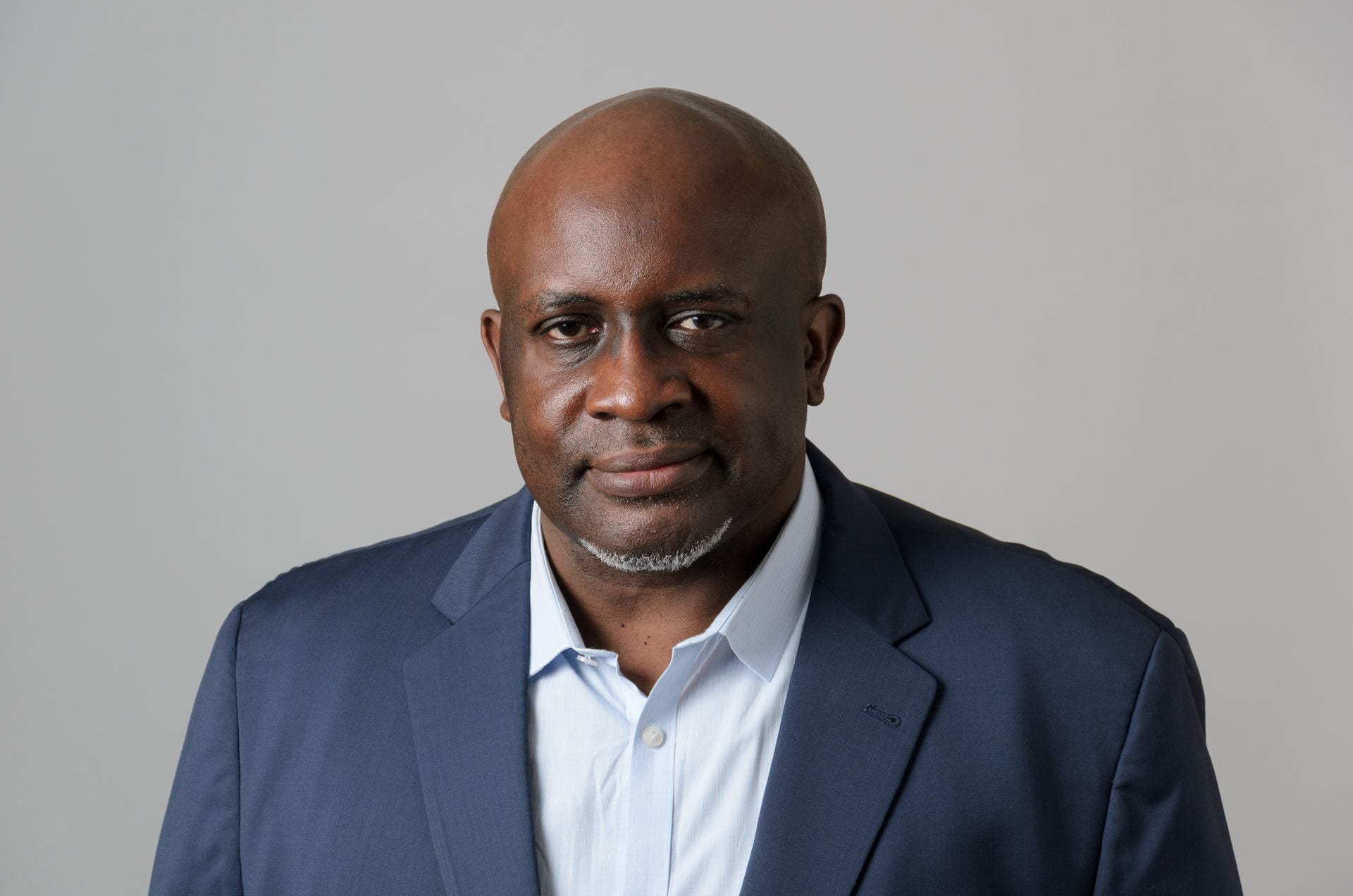2022 Celebration of Teaching & Learning Symposium
March 29, 2022 • Low Library / OnlineThe Office of the Provost and the Center for Teaching and Learning invited the Columbia community to the Celebration of Teaching and Learning Symposium on Tuesday, March 29, 2022 from 10am–5pm to celebrate the ways that faculty and students are transforming their courses and pedagogies.
Keynote
Franklin A. Tuitt
Frank Tuitt is the University of Connecticut’s Vice President and Chief Diversity Officer and Professor of Higher Education and Student Affairs in the NEAG School of Education. In 2019, he received the National Association of Chief Diversity Officers in Higher Education Individual Leadership Award in recognition of “outstanding contributions to research, administration, practice, advocacy, and/or policy, and whose work informs and advances understanding of diversity and inclusive excellence in higher education.” He is a coeditor and contributing author of five books including Plantation Politics and Campus Rebellions: Power, Diversity, and the Emancipatory Struggle in Higher Education (SUNY Press).
Panelists
Beth Barron
Beth Barron is an Associate Professor of Medicine at the College of Physicians and Surgeons, the Associate Director of the CUIMC/NYP Jaharis Simulation Center, and a member of the Allen Hospitalist Division of Internal Medicine. In the simulation center, Dr. Barron oversees medical students’ activities with standardized patients throughout their training, assisting with curriculum development, case writing, standardized patient training and assessment development. Dr. Barron has participated in teaching and administration in many levels of the medical school and internal medicine residency. She is chair of the CARE committee, which ensures that the medical school provides opportunities for practice, assessment, and remediation of clinical skills necessary for competency upon graduation. Dr. Barron received a 2021-2022 Provost’s Teaching and Learning Grant—combining the CTL-supported Large-Scale Grant and SOLER Seed Grant—to study race- and gender-based implicit bias in the evaluation of medical students’ clinical skills.
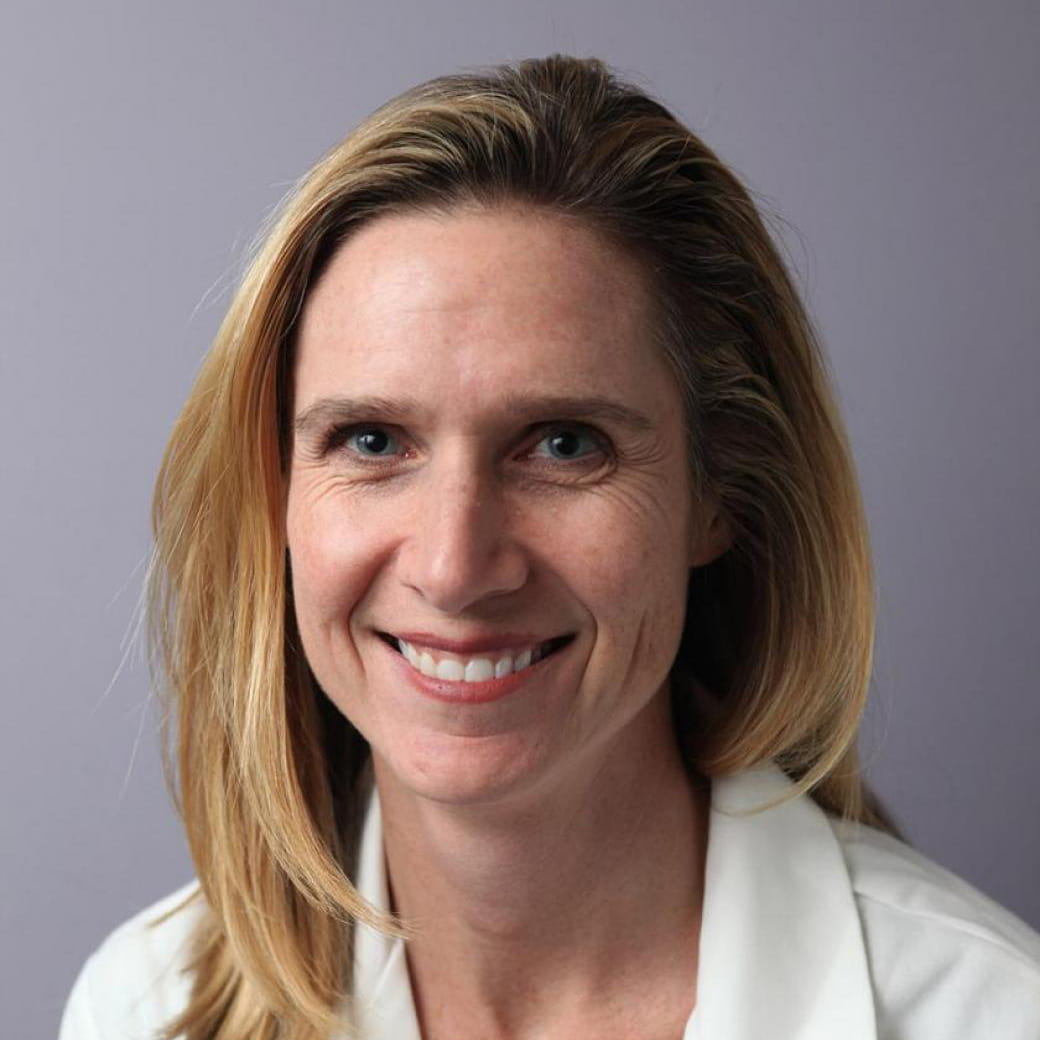
Lila Davachi
Lila Davachi is a Professor of Psychology and Principal Investigator of the Davachi Memory Lab at Columbia. Her research focuses on the behavioral and cognitive neuroscientific investigations of memory encoding, consolidation and retrieval. Dr. Davachi and her colleagues use behavioral and neural (conventional and high-resolution fMRI, iEEG, MEG) measures to help us learn more about the cognitive and neural operations that contribute to episodic memory. Her work is internationally known and frequently published in top-tiered scientific journals. Dr. Davachi and colleagues received a 2021-2022 Provost’s Teaching and Learning Grant for the project “Cultivating Science Identity and Increasing Persistence in STEM: Expanding Access, Training, and Support for Undergraduate Researchers.”
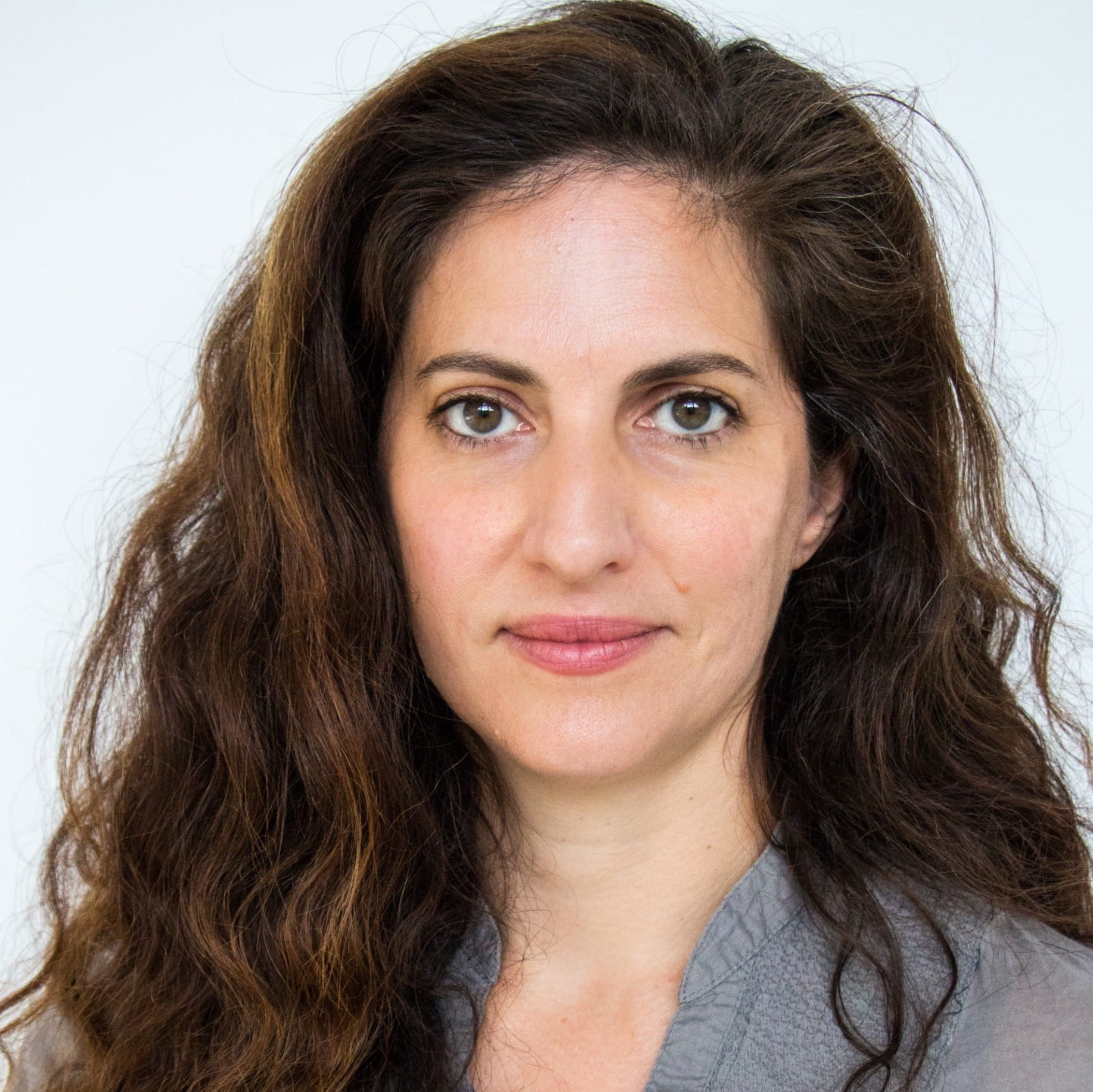
Ana DiGiovanni
Ana DiGiovanni is a 3rd year PhD student in the Psychology department. She studies social support and social emotion regulation in close relationships (e.g., romantic relationships, close friendships, family relationships) in the Couples Lab, under Dr. Niall Bolger. She is specifically interested in delineating how these social processes unfold during times of stress and in everyday life. Ana is also a Lead Teaching Fellow with the CTL this year, and co-founded the Summer Internship Program in Psychological Sciences (SIPPS) for undergraduates interested in psychology and neuroscience research at Columbia.

Babi Kruchin
Babi Kruchin is a Lecturer in English as a Second Language at the American Language Program where she teaches “Academic Writing to International Students,” academic skills for graduate students, and courses in the Intensive English Program. She has trained ESL teachers on both campus and online courses in Brazil, the United Kingdom, and the United States, and often presents in TESOL conferences. Her interests lie in teacher education, teaching academic writing, and the effective use of technology in the classroom. Babi Kruchin received a Spring 2021 Provost Teaching and Learning Innovative Course Module Design grant for her project Improving International Students Writing Skills through Reviews and Teacher Feedback in an Academic Writing Course.
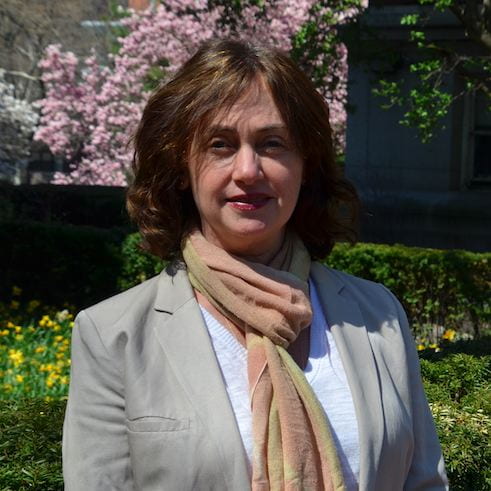
Janet Metcalfe
Janet Metcalfe is a Professor and Director of Graduate Studies in the Department of Psychology and a co-chair of the SOLER Faculty Advisory Committee. Her research centers on how people know what they know—that is, their metacognitive abilities—and whether they use these abilities for effective self-control. One of Professor Metcalfe’s goals is to investigate the relationship between metacognitive judgements and study habits, including whether people are able to appropriately allocate and sustain their own attentional resources in a manner that maximizes their learning. In an applied context, Professor Metcalfe’s work includes designing and evaluating a cognitively and metacognitively guided study skills enhancement program for at-risk middle school children.
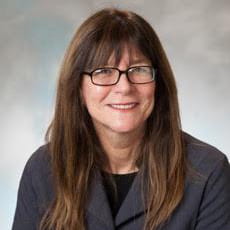
Arya Rao
Arya Rao is a senior in Columbia College studying Biochemistry and Computer Science. She was a student in Professor Brent Stockwell’s* Introductory Biochemistry course in Fall 2021; subsequently, she served as a Teaching Assistant for the same course in Summer 2021 and Fall 2021, leading the course’s virtual reality-based discussion section during the latter semester. Her research interests center around molecular evolution and infectious diseases, and she will begin MD-PhD training in Fall 2022. *Dr. Stockwell is a recipient of a Provost Teaching and Learning SOLER Seed Grant (PSSGs) and CUIT Emerging Technology Grant.

Natalie Voigt
Natalie Voigt is an Assistant Professor of Nursing at Columbia University School of Nursing. As a clinician, Dr. Voigt has practiced in a variety of settings (i.e., medical-surgical, oncology, orthopedic, cardiology, and stepdown), primarily caring for adult and geriatric patients. She is currently focused on global health initiatives where she is involved in building relationships with foreign schools of nursing and building their respective programs of research. Dr. Voigt also serves as a faculty mentor in Columbia School of Nursing’s Academic-Practice Research Fellowship Program and PI for a nurse-driven research project. Dr. Voigt currently teaches medical surgical nursing in an accelerated graduate degree program designed for students with a bachelor’s degree in another field. Dr. Voigt received a Spring 2021 Provost Teaching and Learning Innovative Course Module Design grant for her project: Increasing Student Critical Thinking through Case-Based Learning Modules in Medical Surgical Nursing Education.
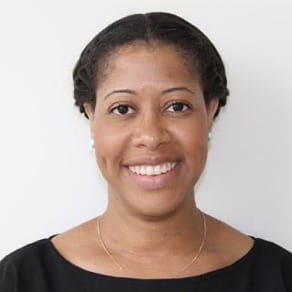
Elizabeth Walters
Elizabeth Walters is a lecturer in discipline and the co-director of the American Studies cohort at the University Writing Program. She previously served for several semesters as a consultant at the university writing center, and her teaching and her approach to offering feedback are shaped by those experiences. She also has worked as a high-school teacher and continues to work as a writer and journalistic and academic editor. She holds an MFA in creative nonfiction writing from Columbia, a certification in secondary English education from the University of New Orleans, and a BA in English language and literature from Smith College. Her writing has appeared in a number of publications, including The Times-Picayune, The Village Voice, The Rumpus, and the Best American Poetry blog.
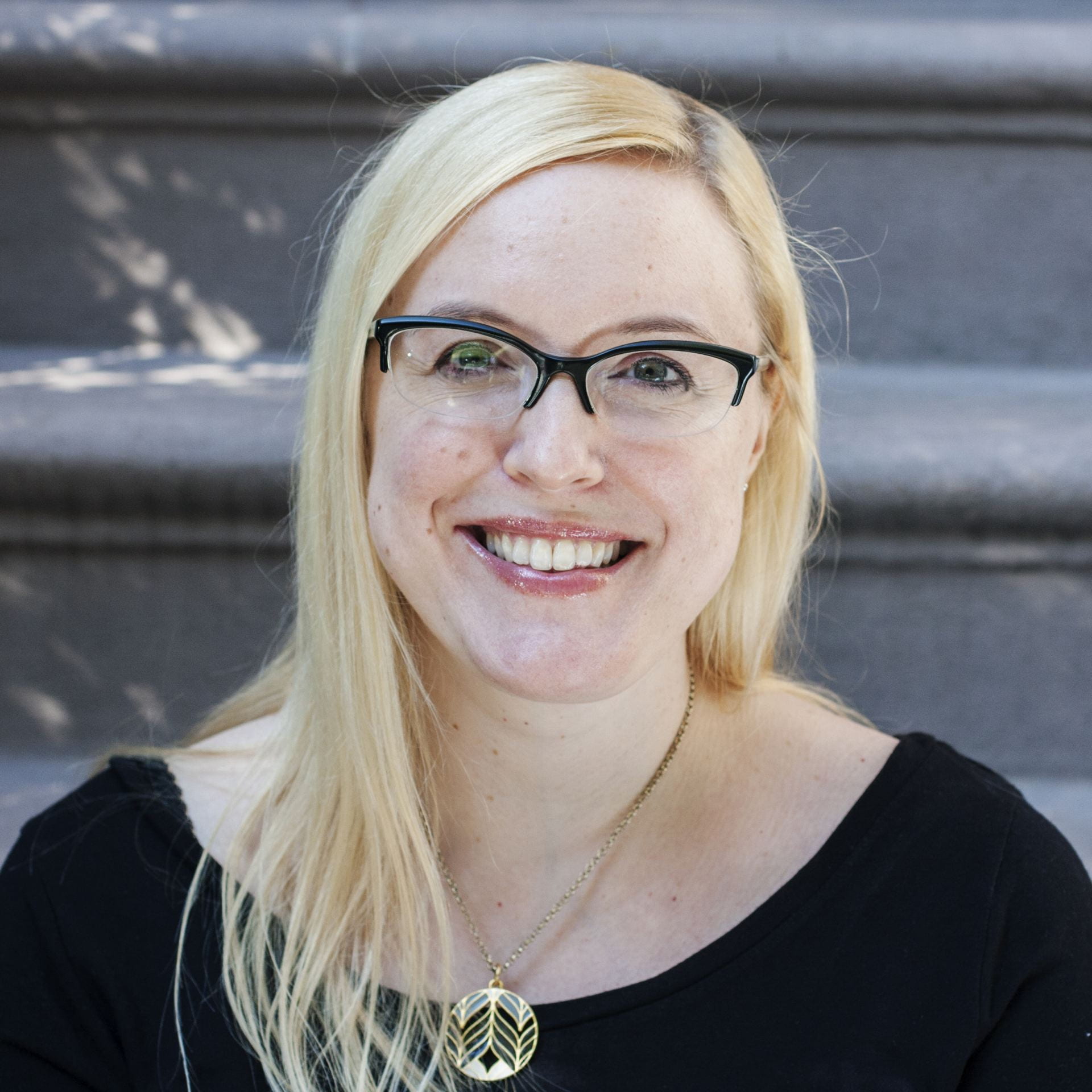
Poster Exhibition
A Synchronous Exercise for Collective Syllabus Annotation
Christine D. Holmes (School of Social Work)
Land Acknowledgment Series
Hana Rivers, Annabelle Tseng (Center for Engaged Pedagogy, Barnard)
Mediathread 2022: Make Original Discoveries Through Close Analysis
Mark Phillipson, Nik Nyby, Andrew Corpuz (Columbia CTL)
Metabolism in the Metaverse: Virtual Reality to Enhance Engagement and Learning in Biochemistry
Brent Stockwell (SOLER, Biochemistry), Adam Brown (SOLER), Taruna Neelakantan (Chemistry), Arya Rao (Columbia College)
Teaching Undergraduates About Academic Integrity in CourseWorks
Victoria Malaney-Brown (Columbia College, SEAS), Andrew Corpuz (Columbia CTL)
Fostering Pedagogical Innovation in Asynchronous Courses
Minh Le (Teachers College Digital Futures Institute)
Self-Directed Physical Exam Teaching Modules for Pre-Clerkship Students
Tommy Davis, Shirin Dey (Department of Medicine)
The Impact of an Online Self-Directed Medical Crisis Resource Management Course on Perceived Confidence and Behavior
Frank Parisi (Vagelos College of Physicians and Surgeons)
Online Simulation Effectively Teaches Introductory Disaster Triage Skills
Kiran Pandit, Christopher Tedeschi (Department of Medicine)
Togetherness Through Listening and Learning: Efforts to Facilitate Students’ Engagement for Listening Comprehension
Naoko Sourial (East Asian Languages and Cultures)
Adapting the Jigsaw Method for Remote Learning in Introductory Psychology
Monica Thieu, Caroline Marvin (Psychology) and John C. Foo (CTL)
Lessons Learned from Offering Customized Faculty Development for a Community of Online Educators
Lia W. Marshall, Matthea Marquart, Kristin Garay, Rebecca Y. Chung (Online Education, School of Social Work)
Imaging the Brains of Students Studying Brain Imaging: When Neuroscience Meets the Class
Alfredo Spagna (SOLER, Psychology), Conor Shatto (Psychology)
Nutrition Education DESIGN Procedure: Creating “DESIGN Online” to Facilitate Effective Translation of Theory Into Practice
Pam Koch, Isobel Contento (Teachers College)
Prog 21 Environmental Epidemiology 2020-2021AD: Online and Hybrid Editions
Andrew G. Rundle, Tonguç Yaman (Epidemiology)
Summer Internship Program in Psychological Sciences (SIPPS): Engaging Students in Hands-On Research Opportunities
Ana DiGiovanni, Manasi Jayakumar, Paul Bloom, Camille Gasser, Anna Vannucci, Ben Silver (Psychology)
Training the Future Front Line: Teaching Medical & Psychology Learners Teamwork to Promote Multidisciplinary Collaboration
Dara Steinberg, Megan Askew, Alexandra Antosy (Medical Psychology)
A Medical Education Online Curriculum and Work-Based Assessment of Teaching Skills for Senior Medical Students
Beth Barron, Simon Liebling (Vagelos College of Physicians and Surgeons)
Eureka: Improvisation Leadership in the Musicianship Classroom
Peter Susser (Music)
Logic Learner: A Tool for Propositional Logic
Sam Sadeh, Zarina Mustapha (Columbia CTL)
Transitional Justice: Advocating for a Politico-Legal Framework in Medical Education to Advance Health Equity
Emily McNeill, Toluwani Dawodu, Cassie Tarleton, Ahmed Owda, and Hetty Cunningham (CUIMC)
Materiality, Embodiment, and Pedagogy Online
Joscelyn Jurich (Center for Engaged Pedagogy, Barnard)
Ungrading: A Reimagined Assessment of Student Learning
Amy Werman (School of Social Work)
Develop Professional Thinking and Communication Skills: Stepping Out of the Box
Steve Safier (School of Professional Studies)
Listen Learn Create: The Chinese Language Podcast Project
Zhongqi Shi (East Asian Languages and Cultures)
EconPractice Developments
Tom Groll (SIPA), Mike Tarnow (Columbia CTL)
Procedure-Based Anatomy Education: A Supplement to Traditional Anatomy Curricula for Medical Students
Alan Detton, Jennifer Kunes (Vagelos College of Physicians and Surgeons)
Novel Design of an Austere Medicine Elective
Kiran Pandit, Christopher Tedeschi (Department of Medicine)
QuizCon: Quizzing with Confidence
Mike Tarnow (Columbia CTL)
Centering/Burdening: A Dialogical Resource on Racism, Anti-Racism, and Pedagogy
Alex Pittman (Barnard Center for Engaged Pedagogy)
Showcasing Graduate Student Teaching Development with the TDP
Mark Phillipson, Caitlin DeClercq (Columbia CTL)
Anti-Racism at the Bedside: Teaching Medical Students Skills to Eliminate Racism and Bias in Clinical Encounters
Catherine Tarleton (Vagelos College of Physicians and Surgeons)
Flipped Classroom Redesign: N7004 Care Coordination
Karol DiBello (School of Nursing)
Clinical Interviewing in Primary Care Settings
Nataliya Pilipenko (Center for Family and Community Medicine, CUIMC)
From the Community, For the Community: Participant Engagement with the Teaching Development Program During the Pandemic
Tianyuan Huang (East Asian Languages and Cultures), Caitlin DeClercq (Columbia CTL)
Anti-Racist Pedagogical Considerations and Strategies for Synchronous Online Courses
Matthea Marquart (Online Campus, School of Social Work)
Locus Tempus: A Platform for Collaborative Mapping
Meesha Meksin, Susan Dreher (Columbia CTL)
Students as Pedagogical Partners Initiative
Ambrose Zhu, Emma Fromont, Sarah Considine, Victor Jandres Rivera, Jamie Kim, Suzanna Klaf (Columbia CTL)
Humanism in Anatomy Cadaver Dissection Using Student and Faculty Reflections
Alan Detton, Paul Lewis (Vagelos College of Physicians and Surgeons)
A Novel Virtual Workshop on Trauma-Informed Care for First Year Medical Students
Caroline Cherston, Devon Rupley, Sadie Elisseou, Beth Barron (Vagelos College of Physicians and Surgeons)
Incorporating Technology into a Bias Response Upstander Curriculum
Jean-Marie Alves-Bradford (Psychiatry)
Developing an Innovative Hybrid Curriculum for Professional Development and Leadership
Kaitlynn Liriano, Jenny Mak, Liz Strauss, Gabby Lilienthal (School of Engineering and Applied Sciences)
Multiple Modality Laboratory Course
Sarah Hansen (Chemistry)
Just Care in the Justice System
Adrian Thompson, Cameron Clark, Gabby Wimer, Jeremiah Douchee, and Mansi Shah
Mapping Yiddish Europe: A Locus Tempus Project
Agnieszka Legutko, Germanic Languages Department
PANEL: The Science of Learning Research Initiative: Tales from Columbia’s New Adventure in Scientific SoTL
Moderated by Science of Learning Research Initiative (SOLER) Program Director Adam Brown, this panel explored the intersection of scientific research and the Scholarship of Teaching and Learning (SoTL) through the lens of cognitive psychology, clinical training, and undergraduate journeys. Professor Janet Metcalfe discussed her role as a co-chair of the SOLER Faculty Advisory Committee and the relationship between laboratory psychology research and classroom-based studies of teaching and learning in K-12 and higher education contexts. Beth Barron reported on her dual collaboration with the CTL and SOLER investigating race- and gender-based implicit bias in the evaluation of medical students’ clinical skills. Arya Rao shared her experience progressing from student to teaching assistant in a virtual reality (VR)-based Introductory Biochemistry course led by Professor Brent Stockwell, a SOLER grant recipient studying the impact of VR on student engagement and learning. Panel included a Q&A.
PANEL: Faculty Innovations in Teaching and Learning: An Interdisciplinary Panel Conversation
Moderated by Center for Teaching and Learning (CTL) Senior Director of Faculty Programs and Services, Amanda Irvin, this panel explored faculty innovations in teaching and learning made possible through the Office of the Provost’s Teaching and Learning Grants. Professor of Psychology, Lila Davachi, along with PhD student Ana DiGiovanni, discussed the collaborative project, “Cultivating Science Identity and Increasing Persistence in STEM: Expanding Access, Training, and Support for Undergraduate Researchers.” Babi Kruchin, Lecturer in English as a Second Language at the American Language Program, and Elizabeth Walters, Lecturer in Discipline and the co-Director of the American Studies cohort at the University Writing Program, offered insights from their funded project, “Improving International Students Writing Skills through Reviews and Teacher Feedback in an Academic Writing Course.” Associate Professor of Nursing, Natalie Voigt, shared innovations from her funded project, “Increasing Student Critical Thinking through Case-Based Learning Modules in Medical Surgical Nursing Education.”
Poster Exhibition and Reception
Remarks from Catherine Ross, CTL Executive Director
Over 30 Columbia faculty, students, postdocs and staff presented posters and digital interactives (linked in above Poster Exhibition section) to share their teaching and curricular innovations. The exhibition featured collaborative learning activities, blended classrooms, new models of student assessment and teaching with technology, and highlighted projects by faculty recipients of the Provost’s funding opportunities. Afternoon refreshments were served.
KEYNOTE: Moving Beyond Diversity to Create Anti-Racist Teaching and Learning Environments
Remarks from Columbia Provost Mary Boyce
Despite best efforts to advance diversity, postsecondary institutions around the world have found themselves in the midst of campus protests. Arguably, at the heart of increased activism on college campuses is the failure of postsecondary institutions to create more anti-racist learning environments where minoritized students can experience teaching that suggest their lives and their lived experiences really matter. Accordingly, this presentation by Dr. Frank Tuitt explored how a commitment to an anti-racist praxis can contribute to the promotion of anti-racist teaching and learning environments both in and outside of the classroom. Following the presentation, Dr. Tuitt took questions from the audience.
